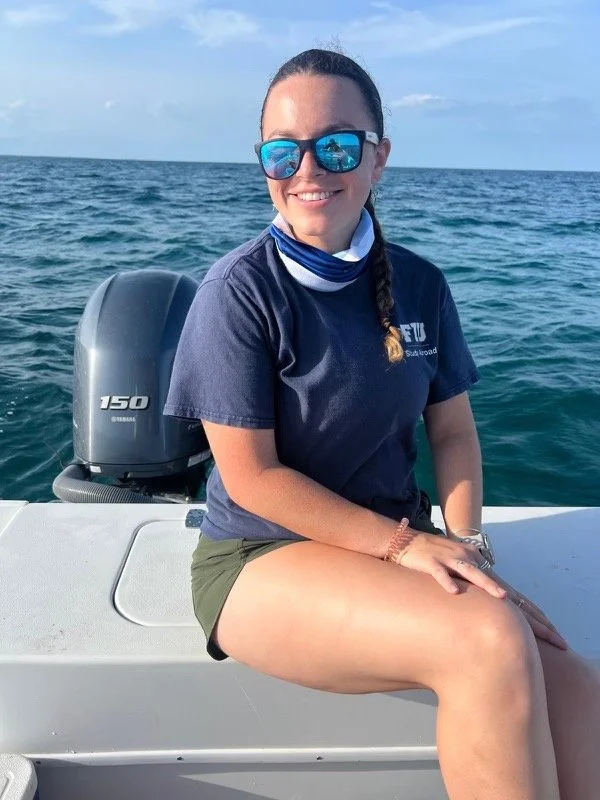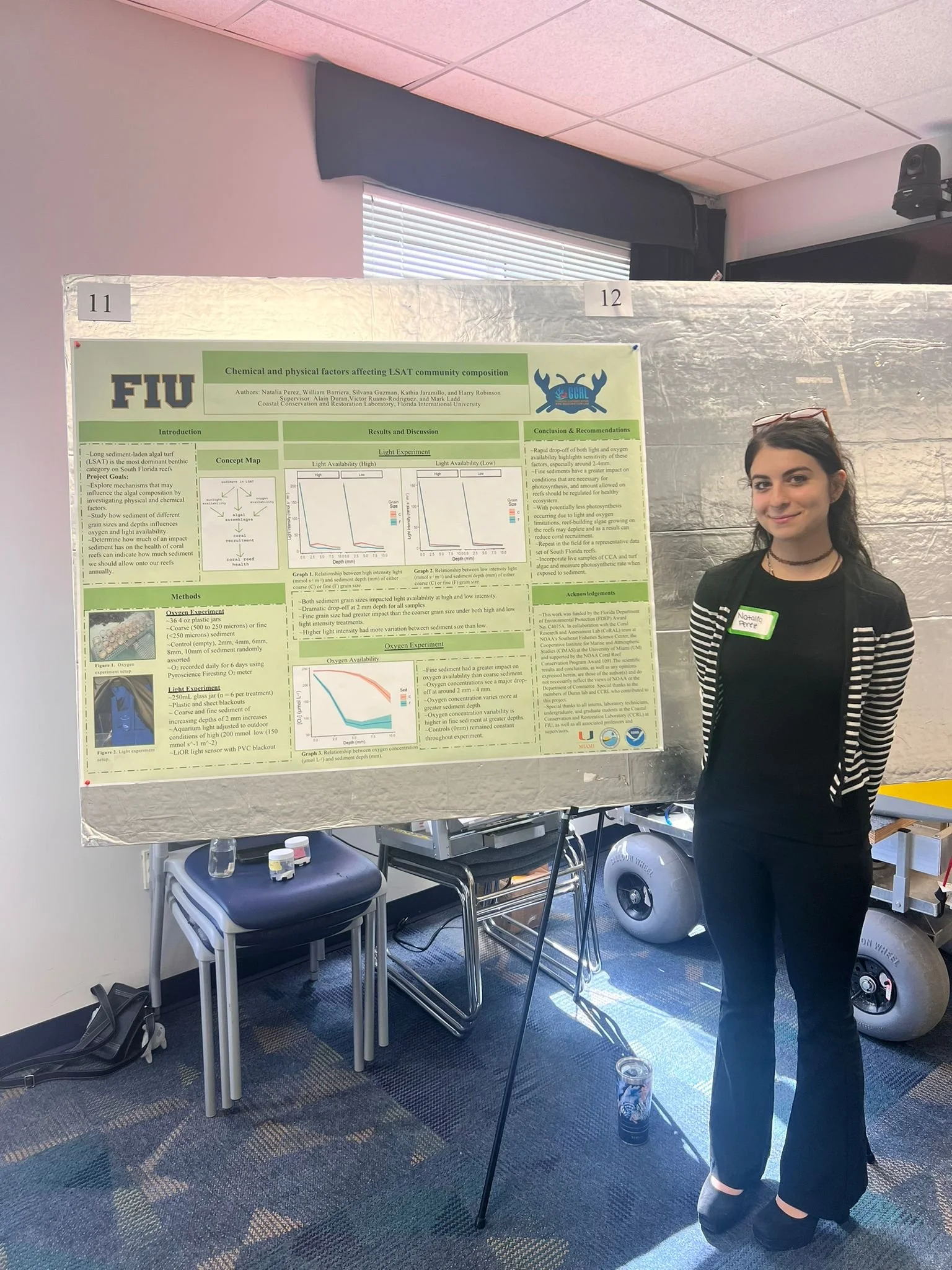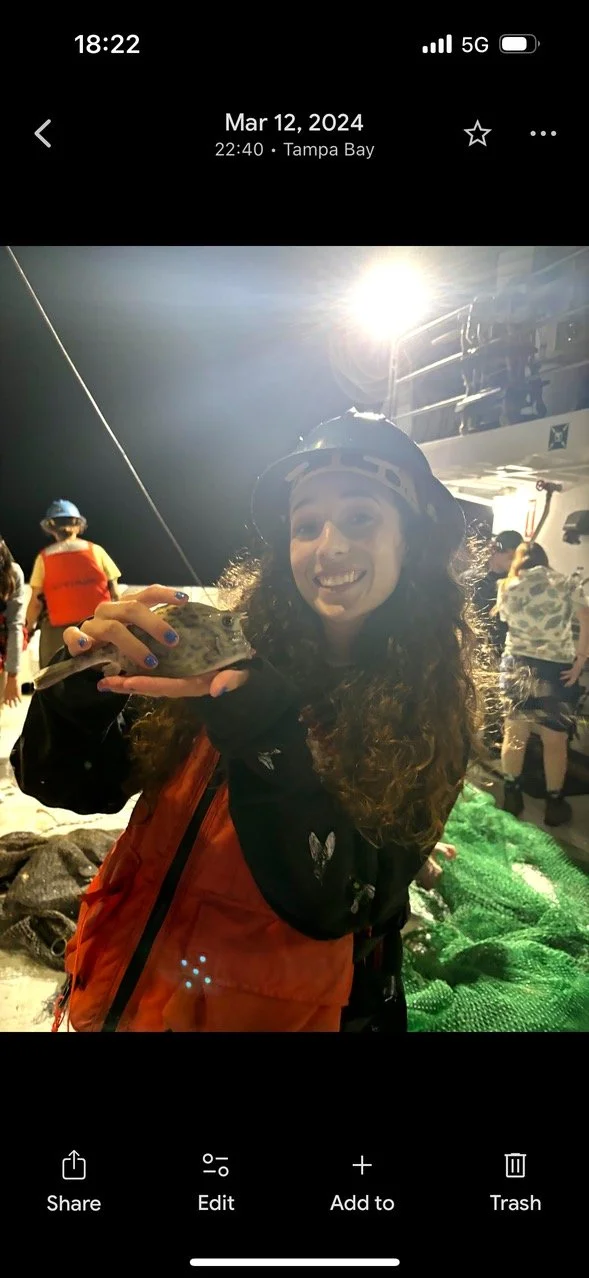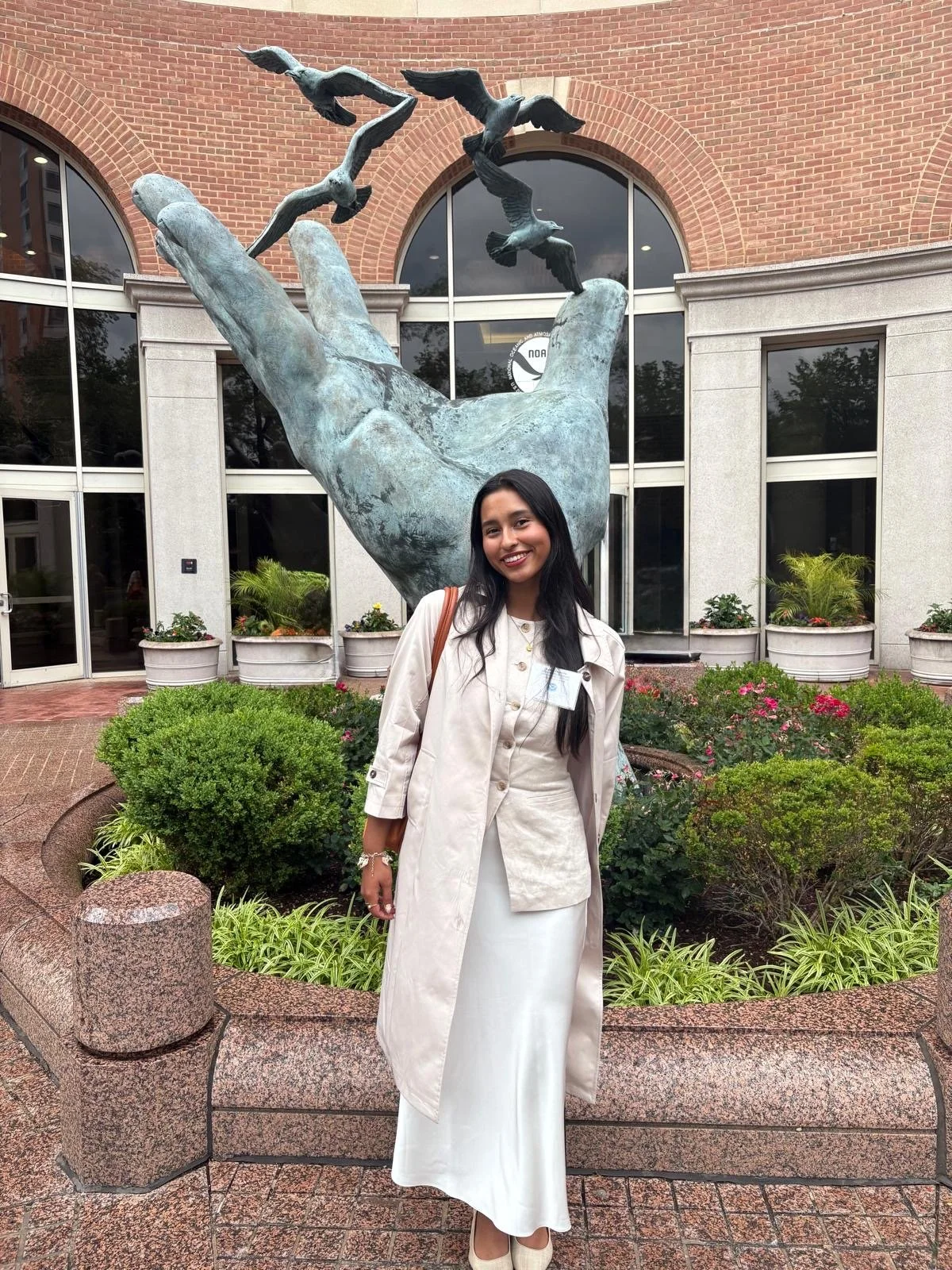The REVERSE Lab
-
![]()
Alain Duran, Ph.D.
Assistant Professor, head P.I. of the REVERSE lab and director of the Coastal Conservation and Restoration Laboratory (CCRL)
Dr. Duran obtained his Ph.D. in biological sciences from Florida International University. For his dissertation, he studied the drivers of plant-herbivore interactions on Caribbean coral reefs (Florida, Cuba, and The Bahamas) and their impact on ecosystem resilience. He currently focuses on the ecology, conservation, and restoration of coral reefs, mainly on herbivores' ecological roles and the dynamics and composition of cryptic coral reef macroalgal assemblages (e.g., turf-forming species and crustose coralline algae).
-
![Victor Rodriguez-Ruano, Ph.D.]()
Victor Rodriguez-Ruano, Ph.D.
Postdoctoral Associate at the Cooperative Institute for Marine and Atmospheric Studies NOAA
Victor’s research focuses on assessing how widespread disturbances in Florida, such as sedimentation, impact corals during their first 18 months of life. He is particularly interested in addressing how variations in sediment biogeochemistry influence coral physiology, survival, and species-specific responses across early life stages.
-
![]()
Robert Tomasetti, Ph.D.
Postdoctoral Associate, Institute of Environment, NSF CREST Center for Aquatic Chemistry and Environment
Robert’s current research investigates why some seaweeds in Biscayne Bay (and South Florida) form blooms, while others don't, even when exposed to the same nutrient and temperature conditions. Part of this investigation involves tracking the stoichiometric ratios (carbon:nitrogen: phosphorus) in local seaweeds over time and examining how these observations relate to larger biogeographical patterns in seaweeds, both regionally and globally.
-
Leah Cifers
Ph.D. Candidate in the REVERSE Lab
Leah’s current research with the REVERSE lab focuses on coral reef restoration throughout Florida’s Reef Tract. Specifically, using invertebrate grazers as tools to reduce competition between macroalgae and corals and mediate sediment accumulation that can inhibit coral recruitment and survival. Understanding how these grazers can contribute to reef health in the coming decades is a crucial component of restoration efforts during an era of extreme climate change.
-
![]()
Silvana Guzman
Master’s Student in the REVERSE Lab
Silvana is a Master’s student in the REVERSE Lab at FIU. Silvana first joined the lab as an intern before moving on to seek a master’s degree at FIU. Her research primarily focuses on the impacts of long sediment-laden algal turf (LSAT) on Florida’s coral reefs. She also investigates how reef degradation influences the biology and ecology of crustose coralline algae (CCA) and how certain species impact coral recruitment. Silvana is an avid diver who is passionate about marine conservation.
-
Natalia Perez
Ph.D. Student in the REVERSE Lab
Nat is a Ph.D. student whose current research focuses on community shifts in benthic macroalgae assemblages on Florida’s reefs in the presence of sediment. In particular, she is investigating how sediments of different grain sizes and depths limit gas exchange and light availability.
-
![]()
Angel Avedo
REVERSE Lab Technician
Angel is currently researching the semi-wild mariculture of the Caribbean King Crab in saltwater quarries in the Florida Keys. Local coral restoration efforts combine coral outplanting in tandem with herbivores to mitigate competition between corals and macroalgae. A large hurdle with this technique is providing adequate densities of these herbivores to restore reefs. Angel is tackling these questions in the quarries to determine if we can increase crab densities for future transplantation to the reef.
-
![]()
Claire Hiaasen
REVERSE Lab technician
All hands on deck! Claire currently works with the REVERSE Lab on various projects both in the field and in the lab. She is a diver and artist, adding creativity to everything she touches! Claire’s primary research focuses on the benthic community structure in quarries in the Florida Keys, which are targets for the semi-wild mariculture of the Caribbean King Crab —a target for reef restoration.
-
Kathia Jaramillo
REVERSE Lab Technician
Kathia is an undergraduate at FIU and started as an intern in the REVERSE Lab. She has been a part of the lab for several years, participating in multiple research projects both in the field and in the lab. Collaborating with NOAA, her primary research focuses on the effects of sedimentation on the survival of corals during their early life stages.









